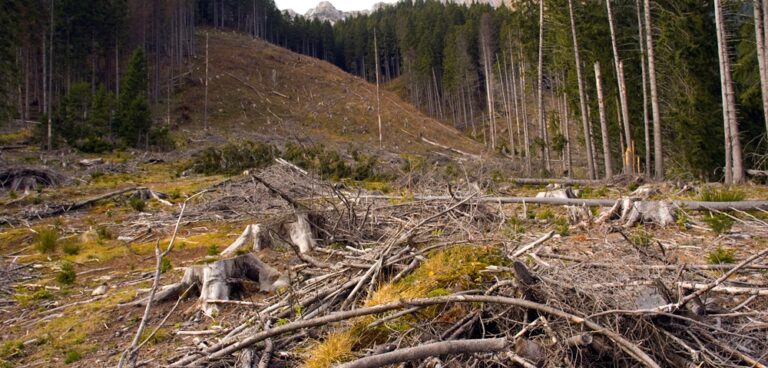UK businesses have been warned that failure to comply with the new EU deforestation regulation (EUDR) could result in criminal penalties and huge fines.
Supply chain experts Authenticate are urging companies to demonstrate that goods placed on the EU market are deforestation-free, with thousands of businesses at risk of being punished for non-compliance.
Businesses failing to show that due diligence has been performed can expect fines of up to 4% of their EU turnover under the EUDR and criminal penalties under national law.
The EU legislation sets out how companies should conduct due diligence, including the collection of detailed information and risk management.
While some UK businesses are making progress, many are not yet fully prepared for the new laws, which will come into effect from 30 December 2025.
The EUDR is designed to reduce the EU’s impact on global deforestation and forest degradation linked to the production of specific commodities.
The new law replaces the EU Timber Regulation (EUTR), which carries fines and up to two years imprisonment for serious breaches of due diligence obligations.
Broader in scope, the EUDR will affect many more UK businesses as the supply chains of a wider range of products will need to be monitored and managed for deforestation impact.
While EUTR focuses on timber, EUDR encompasses commodities like cattle, cocoa, coffee, oil palm, rubber, and soya and derived products such as beef, furniture, and chocolate.
From producers to traders, all companies will need to demonstrate that products are deforestation-free, not only those involved in the initial import, as current EUTR rules require.
This widening of accountability means all companies must trace their supplies, perform due diligence, conduct risk analysis and mitigate risk before bringing products to market.
With the end-of-year deadline for large businesses and the 30 June 2026 deadline for small businesses approaching, operators and traders are working to put systems in place.
Despite a 12-month delay in implementing the EUDR from the original deadline of December 2024 to give businesses and the EU more time to prepare, there is still work to be done.
A country risk classification process is being conducted to help companies navigate the EUDR’s due diligence requirement and will be published no later than 30 June 2025.
Alex Walters, CEO of Authenticate, a company that helps businesses manage and monitor supply chains, believes it isn’t too late for operators and traders to root out deforestation risk.
He said: “The new EU deforestation regulation coming into force at the end of the year will make many more businesses accountable for their products’ impact on deforestation.
“The EUDR will broaden the scope of commodities and derived products businesses need to monitor across their supply chains, and those businesses used to operating under EUTR may be caught out.
“Some of these products may not be immediately obvious contributors to deforestation and forest degradation, such as ice cream, shampoo and detergent, which can contain palm oil.
“Companies will need to map suppliers and products to identify and assess risk so action can be taken to avoid costly fines and other criminal penalties, with thousands of businesses affected.
“Beyond any penalties companies may incur, there are significant costs to removing a product and changing suppliers, particularly if the risk wasn’t identified early.
“That’s why it’s so important for companies to put systems in place to map high-risk deforestation commodities now ahead of the end-of-year deadline.
“The complexities of global supply chains for many goods make monitoring the origin and means of manufacture of all ingredients extremely challenging.
“A recent example of companies suffering due to a lack of supply chain awareness was when it was discovered that some ‘Italian’ tomato purees likely contained tomatoes grown and picked in China using forced labour, causing financial and reputational damage.
“The widening of the scope of the EUDR will dramatically increase the complexity of supply chain mapping and assessment around deforestation.
“Businesses that effectively monitor supply chains for deforestation will be able to see the wood for the trees, making more informed decisions to avoid penalties and protect the environment.
For more help understanding EUDR and what it means for your business, visit: https://www.authenticateis.com/understanding-eudr/

